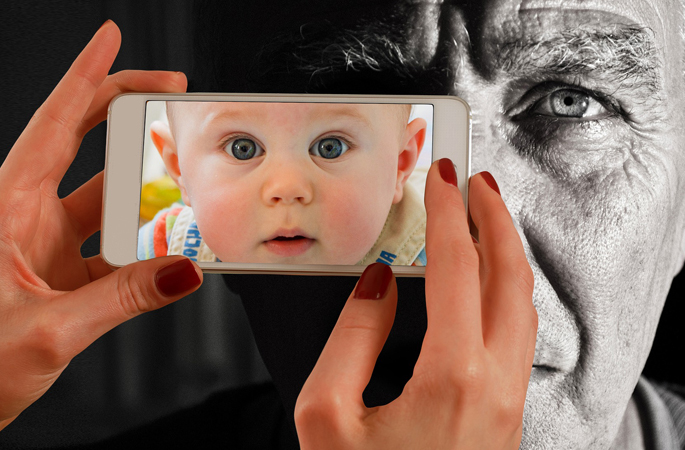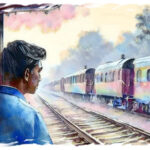“Every generation imagines itself to be more intelligent than the one that went before it and wiser than the one that comes after it”
– George Orwell
When eras overlap, as they always do, the people have always had the uncanny ability to walk over to the new era, embracing all the changes that the new era brought in in its wake. Straddling two eras was not a big challenge for the people since they held onto their primary and essential set of social, cultural and ethical values, not having to sacrifice or compromise them, and the transition to the new era was less demanding and remained discreet.
But the case has not been so simple with the 20th and the 21st centuries…the latter initiating and embracing and assimilating a sea of changes… a quantum leap from what the world was in the previous era, with its cascading and ripple effects reaching down to the core of every sphere of life and unsettling a lot of conditioned habits and cultural traps. The changes that were slow to unfold in the previous era, seemed to have gained in their intensity and momentum and created a global stir and the people of the previous era found themselves almost disconnected and unrecognisable and alien to the current one.
I decided to do an impromptu survey on how people, straddling the two eras, were able to adapt themselves to the challenges that were before them, and how they to handle the resultant wider generation gap. Did they find the transition, from the memories of the past to the reality of the present, smooth and were they able to blend into the mainstream of life?
I found that the materialistic and superficial comforts that were the products of the advances in technology, were welcomed and accepted with enthusiasm, whereas the cultural and ethnic changes brought about by the global stir, were not so readily accepted. The mingling and mixup of diverse cultures were perceived as a cultural shock by those who stood firm in their old and obsolete values.
Some of them put up a pompous show of acceptance, but still, I could sense the deep-rooted resentment underlying their facade of acceptance. They could not stretch their mental faculties to accommodate the cultural transgressions they felt they were experiencing.
Summing up, I was able to group the people into three categories:-
- Those who had a conditioned mindset hardened over the period, stuck in their old ways and values, were critical of the changed ways of the newer generation. They remain the hypocrites, stuck and suffering and wallowing in their conventional and arbitrary customs, forever blaming the newer generation for all the woes of the world.
- Those who are able to make a complete walkover, a smooth gliding transition, and are open and flexible to accommodate all the changed ways of the current generation, looked a happy lot, but they seemed to have failed in some way by not even leaving a residual trace of their previous set of values.
- And those who knew the art of upholding such values that were hitherto an essential part of their lives, in order to have a peaceful, harmonious and integrated relationship with their peers and contemporaries and at the same time, tactfully incorporating the necessary transitional changes to match the newer ways of the current generation.
In the end, I felt the third group of people is the wisest, balanced and versatile one; and I admire and salute them.



